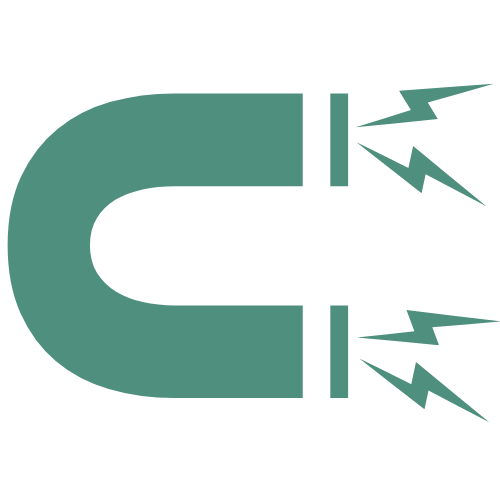 A few weeks ago, the S.O. and I were at a dinner party with a handful of other people. We’re in our 40’s, but we were by far the youngest in the group.
A few weeks ago, the S.O. and I were at a dinner party with a handful of other people. We’re in our 40’s, but we were by far the youngest in the group.
After a while, the conversation turned to “those millennials.” Sure enough, the culture clash between the Baby Boomers and Generation Y was on display.
Well, when haven’t younger people unwittingly ruffled feathers of the stodgier set? Among the current complaints, and you’ve heard them before:
- You millennials are smart, but workers born from 1980 to 2000, or thereabouts, don’t take initiative or know how to finish a job.
- You want a lot of money even before proving value.
- You claim to be communicators but you’re more comfortable texting than composing an email or communicating face to face.
Ouch. Don’t they know how tech savvy you are? How flexible? How passionate about making a difference?
As you job hunt, you may come face to face with hiring managers who need a little help seeing your potential. Truth is, we all do. Around graduation time, Rainmaker Resumes is offering some easy tips to write a resume and cover letter that land you the interview and cut through generational barriers. OK, let’s be honest: cut through some barriers.
-
Consider: What is most important to the organization?
Rainmaker’s Jennifer Shryock interviews our clients, and in her experience, the most common mistake people make when seeking a job is talking about themselves without considering the relevance of their background to the hiring manager. Entry level people do it, as do executives.
So take a moment to read a job description and ask yourself what experience, skills, and characteristics appear to be most important to the employer? Then outline the specific experience or attributes you have that fit. To draw an exaggerated but hopefully concrete example, if you’re applying to be a baker, tout your cakes and cookies, not your green thumb.
2. Start to finish: Highlight a project you’ve completed
If you faced a challenge head on and overcome it, tell that story. It doesn’t have to be a work project, either, especially if you’re applying for your first job. Maybe you volunteered at a film festival and managed a booth at the last minute when another volunteer called in sick. Or you completed an in-depth project for class.
This Forbes story recommends millennials demonstrate an ability to focus and be agile when applying for jobs:
While most millennials will be in assistant roles throughout and for several years after college, they can develop and showcase attention skills by pursuing side projects. Even if the project is small in scale, demonstrating that “you can own initiatives from beginning to end,” as (one expert) put it, can prepare millennials for larger-scale, company-sponsored projects.
and:
Beth Perkins, Talent Acquisition Manger at Delphic Digital, has noticed that millennials often “expect things to go their way” and, if they don’t, “move on rather than sticking it out and finding a solution.”
Show in your resume and cover letter that you can push through to the finish.
3. Write a smart cover letter
This observation from a media professional who recently reviewed 260 job applications is a bit of a shock:
Nobody knows how to write a good cover letter.
Well, we do (Rainmaker horn: Toot, toot!), but more on that shortly.
In fact, Alex McClintock said 90 percent of the cover letters he read were simply repurposed resumes, and for a job in a communications field, no less.
Let’s say that might be good news for you. If you simply write a cover letter with some meaningful narrative about your experience, you’re apparently ahead of the pack.
Rainmaker Resumes uses a cover letter format that has worked time and again, and we’ll share it with you here. After the date, address, greeting, our recipe:
Graf No. 1: Two sentences. Tell the employer you’re pleased to be applying for the specific job. Then, keeping in mind what is most important to them, summarize three skills or qualities you hope will make you an ideal fit for the job.
Graf Nos. 2, 3, 4: In each of these grafs, highlight one skill. Again, choose skills that address what you learned in tip #1, those most relevant to your target employer. We use bolded headlines, say, Compassionate Educator, or Social Media Marketer. Share an example that demonstrates you have that ability. Include a measurable result or a relevant quote from a former superior.
Graf 5: The closer. Here, reiterate your interest in the job and the skills you have that will support the company. One or two sentences.
If you don’t know how to get this piece done, hire an expert to write a cover letter for you. If it isn’t clear already, we do that all day long. Also consider asking for resume and interview coaching experience as a graduation present.
4. Be more than your skills
More and more, we’re finding that companies want to hire not only for skills, but for attitude and aptitude. A recruiter at a quickly growing tech company recently told Rainmaker as much, and in this post, a blogger recommends noting your experiences outside work and the knowledge or insight you took from them, even from reading a book or going on a travel adventure.
Once you get that foot in the door for an interview, consider asking about an area of the company that’s raised your curiosity before you ask how much you’ll be paid if you’re hired.
Good luck diving into the workforce. As I listened to the Boomers at the dinner party, I did wonder what the conversation would sound like around a table with the millennials on the other end of the experience. The culture clash is real, but your generation is shaping the workplace in ways that benefit all of us. So thanks. See you at the water cooler, and one day, I hope, at a dinner party.


